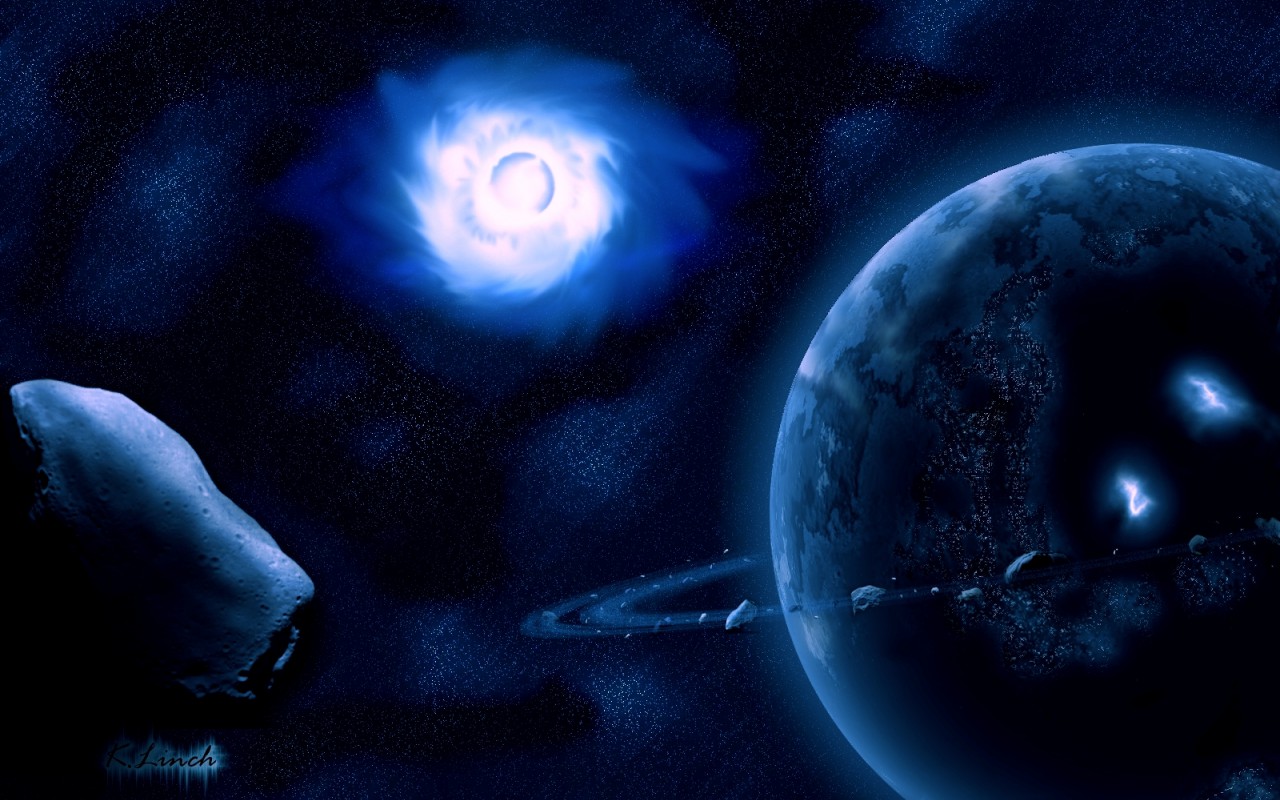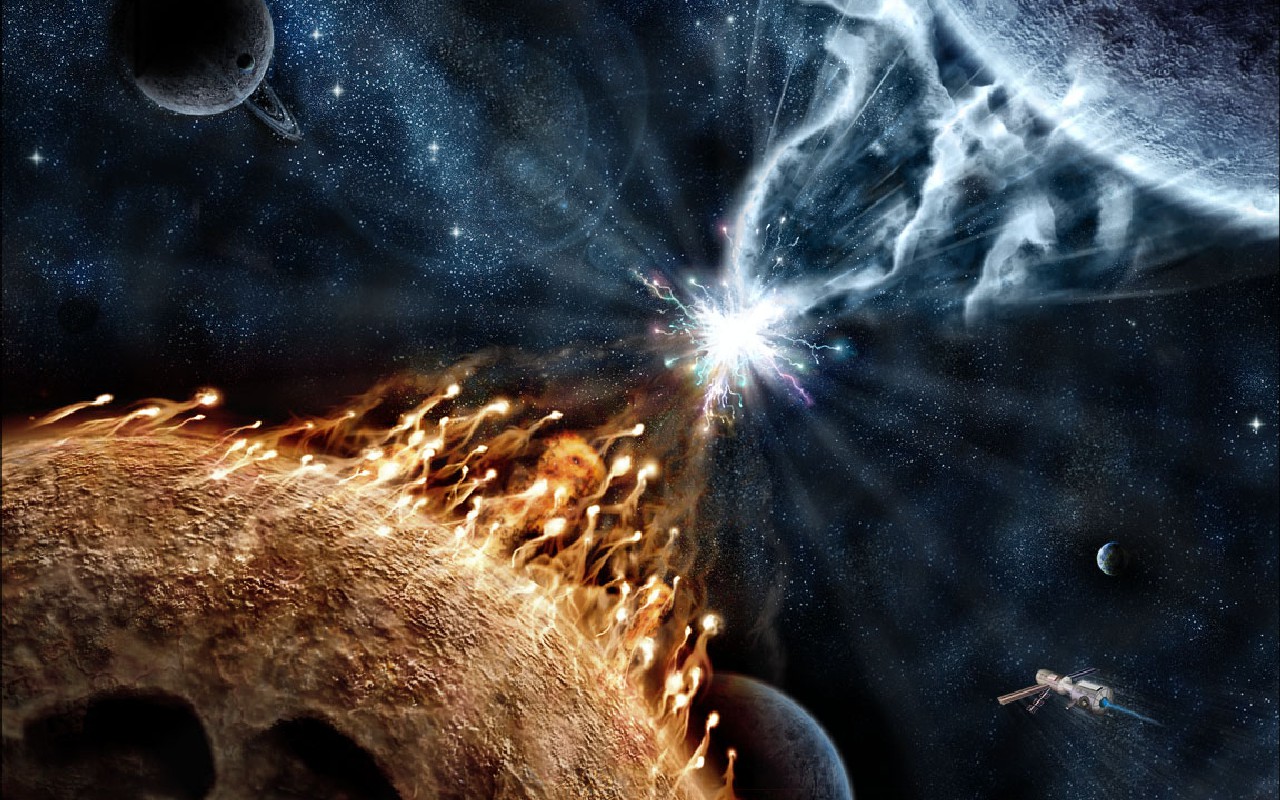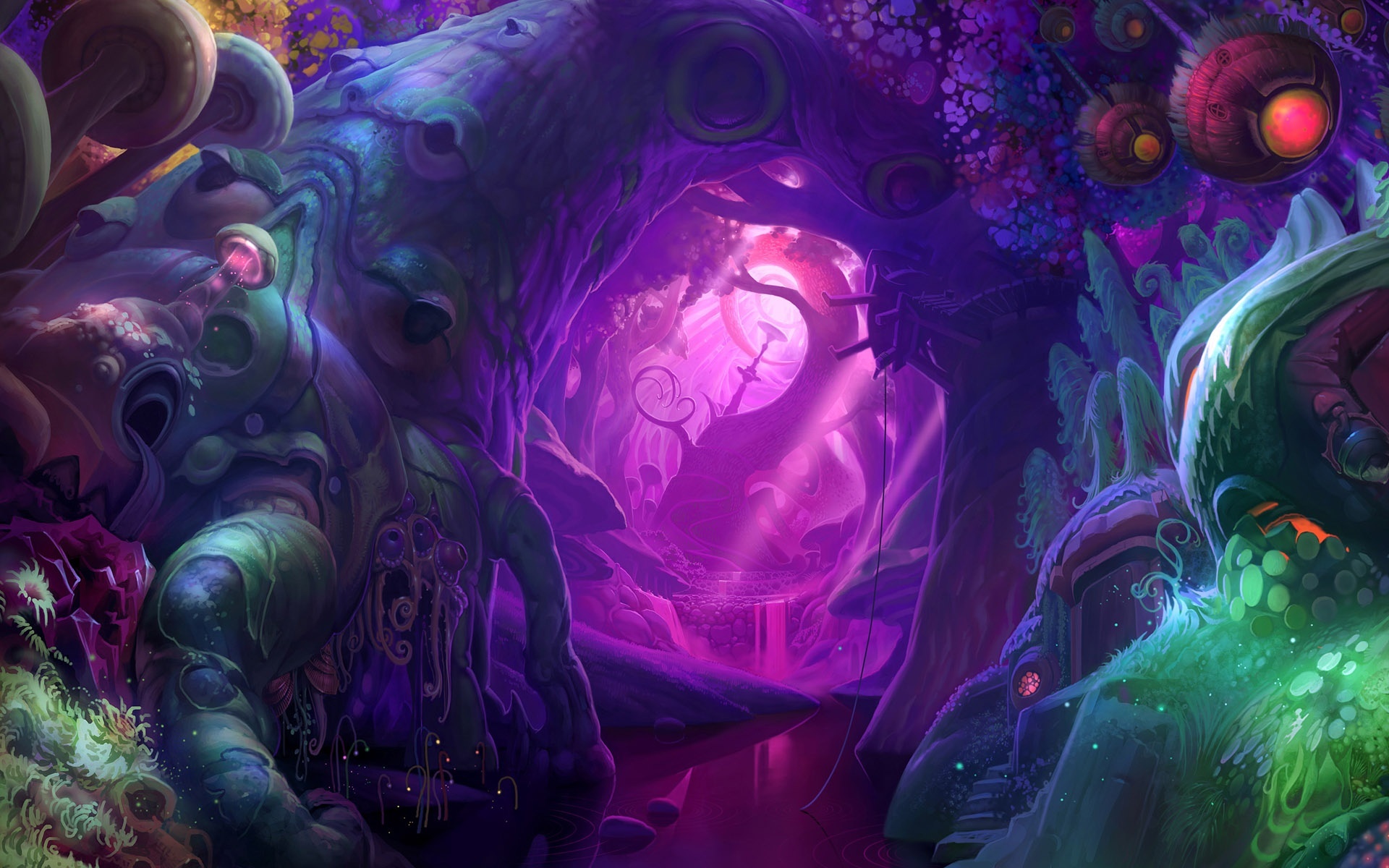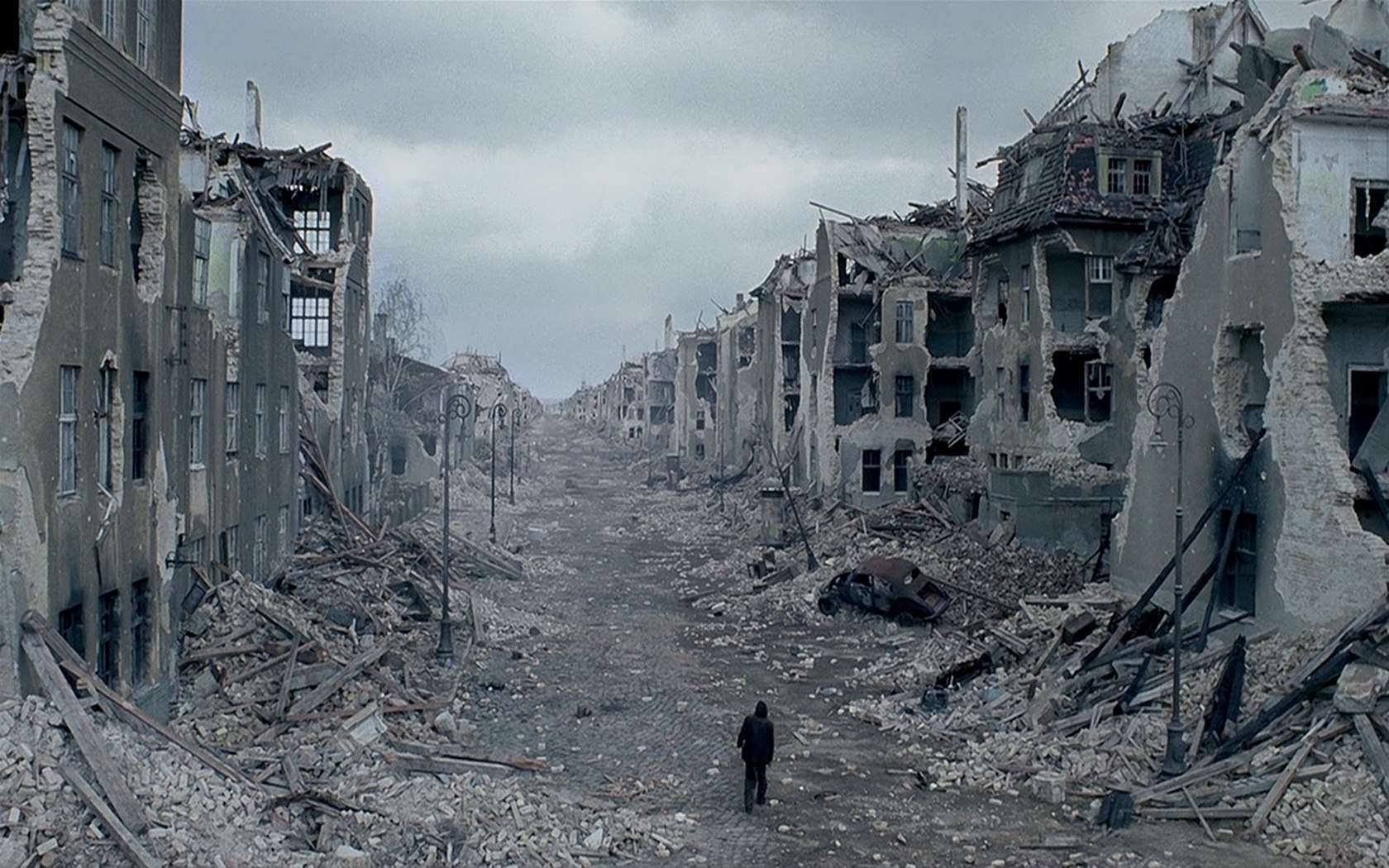Subject: Introduction
The UK Goth Mini-FAQ is an unofficial Frequently Asked Questions
document for the gothic subculture in the United Kingdom. It hopefully
provides some useful information in a succinct manner, although it
doesn’t attempt to detail every facet of the scene. Comments and
updates are welcome; please use the maintainer email address listed at
the top of the document. Alternatively, comment by following-up posts
of the FAQ to the uk.people.gothic newsgroup.
——————————
Subject: Table of Contents
1. Recent Changes
2. What is the gothic subculture?
3. How did the term “gothic” come to describe a style of music?
4. Is goth a religious movement?
5. How is the goth scene linked to the “vampire scene”?
6. Is the goth scene linked with violence or fascism?
7. What goth events are taking place in the near future?
8. What is the Whitby Gothic Weekend all about?
9. What other festivals are of interest to UK goths?
10. What magazines are popular in the UK scene?
11. Can any books on the scene be recommended?
12. How can I get hold of goth music?
13. Where can I find out about goth fashion?
14. How can I look after black clothes?
15. What can I do if I have no local scene?
16. What is a “net.goth”?
17. What is netgoth.org.uk?
18. What newsgroups exist?
19. What are some good tips for posting to uk.people.gothic?
20. What is Internet Relay Chat (IRC) and #uk_goffs?
21. What other Internet resources exist?
22. Credits
——————————
Subject: 1. Recent Changes
From version 1.2.32:
* Removed link to defunct sfgoth.com site (hat tip: Corwyn).
* Removed StarVox Music Zine from Internet resources section; replaced
with I Die: You Die and Dark Divine Magazine.
* Updated link to Dark Waters festival.
From version 1.2.31:
* Mention of Midlands Goth Festival.
* Resurrection Records no longer have a Camden shop.
——————————
Subject: 2. What is the gothic subculture?
The original Goths were an ancient Germanic tribe which split into the
separate Ostrogoth and Visigoth tribes in the third century. The
Visigoths secured their place in history in the year 268, when they
invaded the Roman Empire and swarmed over the Balkan peninsula.
Post-Roman invasion, the word “Gothic” became used to describe the
uncivilised, ignorant or barbarous. The Renaissance humanists of Italy
used this negative sense to describe a style of architecture prevalent
in Western Europe, which they detested. This resulted in the term
becoming synonymous with the dark and ominous, like the architecture
itself. Its use expanded to cover the macabre in the 19th century, when
it was used to describe writings such as Mary Shelly’s “Frankenstein.”
The term “gothic” became increasing used throughout the 1980s to
describe both a style of music and a movement growing out of the ashes
of punk rock. By the late 1980s goth had become mainstream, with bands
such as All About Eve, The Sisters Of Mercy, The Mission and Fields of
the Nephilim — all labelled as gothic rock by the music press —
finding commercial success. A distinctive and arresting fashion had
developed too, with long crimped hair (dyed black), voluminous velvet
dresses (black), tight jeans (black) and leather jackets (also black)
all forming part of the staple goth look.
As the music media lost interest in goth in the early 1990s, it started
to shrink from view. However, united by a common love of dark music, a
network of fanzines and friendships held the scene together. Goth
nights sprung up around the country to play the music more general
alternative nights would not.
Goth re-established itself as a bona fide underground scene, rapidly
finding new fans and exploring different directions in both look and
sound. Bands from the 1990s such as Rosetta Stone and Children on Stun
explored electronic music to a great degree, whilst still maintaining a
distinctive guitar-driven gothic feel. Many goth nights were also
havens for industrial rock, which resulted in a certain amount of
crossover between the scenes.
Bands popular in today’s scene include the The Birthday Massacre, The
Cruxshadows, Inkubus Sukkubus, The Last Dance, Manuskript and Partly
Faithful (ex-Screaming Banshee Aircrew). Electro-industrial and EBM
(Electronic Body Music) projects such as Combichrist, Front Line
Assembly and VNV Nation are also popular with many, especially the
contingent known as “cybergoths”. Many cybergoths also enthuse about
rhythmic noise; sometimes known as power noise, its sound is typified by
projects such as Converter and early Noisex.
The scene is alive and active, supported by its own infrastructure of
promoters, designers, manufacturers and musicians. Furthermore, goth
shows no sign of going away; it has an irrepressible persistence, much
its namesake, the ancient Goths.
——————————
Subject: 3. How did the term “gothic” come to describe a style of music?
The term “gothic” emerged in 1979 to describe various post-punk bands.
Joy Division’s sound was described as gothic by their producer Martin
Hannett, and by Factory Records co-founder Anthony H. Wilson.
Meanwhile, Siouxsie and the Banshees used the term to describe their
Join Hands album.
Other important “gothic” bands from the early 1980s include Bauhaus, Sex
Gang Children, Southern Death Cult and UK Decay. Abbo from UK Decay
inadvertently identified an emerging goth movement in a 1981 Sounds
interview, and Ian Astbury (Southern Death Cult) used the term “goths”
to describe Sex Gang Children fans.
For more information, see An Early History of Goth
<https://www.scathe.com/histgoth.htm> by Pete Scathe.
——————————
Subject: 4. Is goth a religious movement?
The goth scene is rich in religious imagery, including symbols such as
ankhs, crucifixes and pentacles; however it is neither a religious nor
an occult movement. It is seldom an issue in the goth scene, and there
are goths who are atheists, agnostics, Christians and Pagans, as well as
other beliefs too.
Religion is not a major theme for most goth bands either, even though
many do have members who are religious. The Pagan group Inkubus
Sukkubus are an exception to this, and have loyal fans in both goth and
Pagan circles. For an example of a Christian goth icon, look no further
than Nick Cave; he describes how he came to embrace religion in the
essay “The Flesh Made Word,” which can be found amoungst the pages of
“King Ink II” (Two Thirteen Sixty-One Publications, 1997).
——————————
Subject: 5. How is the goth scene linked to the “vampire scene”?
There are practically no links between the goth and vampire scenes; they
are two different subcultures with a very small amount of crossover.
When the mainstream media covers goth, it invariably involves vampire
and witchcraft undertones for the /amusement/ of the general public.
Interestingly, Peter Murphy (Bauhaus) has intimated that the seminal
single “Bela Lugosi’s Dead” — named after the Count Dracula actor —
was released as a joke; unfortunately Bauhaus, and goth, has had to live
with the punch line for a very long time.
Acts like Cradle of Filth (which the media tends to put in the “goth”
camp, even though they are closer to black metal) use both vampire and
gothic imagery; this only adds to the confusion.
——————————
Subject: 6. Is the goth scene linked with violence or fascism?
Up until 1999 the goth scene in Britain had largely escaped any
media-triggered moral panic. The horrific Columbine High School
killings in Denver, USA, changed that, with the press emphasising an
apparant association of the killers with the gothic subculture. The
impact in Britian, however, was not as strong as in parts of the United
States, where goths found themselves as one of several minority groups
singled out in an ensuing media witch-hunt.
Make no mistake: violence, fascism and racism has never been tolerated
by the goth scene. Venue managers often comment positively at the lack
of violent or rowdy behaviour at large goth events. Unfortunately
sensationalist journalism often seems determined to portray goth in a
sinister manner, and the subculture is given little or no opportunity to
defend itself. Sadly little can be done about this.
By the 2010s the media stance has mellowed considerably, publicising a
number of cases in which goths were attacked by gangs solely on the
basis of their appearance. Many people now recognise that goths are
more likely to suffer at the hands of violence than be perpetrators of
it.
——————————
Subject: 7. What goth events are taking place in the near future?
In any given month, there’s a large number of events of interest to
goths taking place up and down the country. See the Events section of
netgoth.org.uk <https://www.netgoth.org.uk/events/> for an accurate guide
on what is happening when.
See the next two questions below for information on Whitby and other
major festivals.
——————————
Subject: 8. What is the Whitby Gothic Weekend all about?
The Whitby Gothic Weekend <https://www.whitbygothweekend.co.uk/> is the
UK’s longest running goth festival. An extended weekend break, it’s a
place for goths both inside and outside the UK to watch bands, discover
new music and generally have a good time. Another important part of the
weekend is the Bizarre Bazaar, which is an excellent place to find those
essential goth and cyber wardrobe items.
The first WGW was in September 1994, when Jo Hampshire (Top Mum) invited
her friends on a seaside holiday. The idea was more popular than she
anticipated — two hundred black-clad people turned up! Sensing she was
on to a winner, the gothic weekend became an annual event situated in
and around the Spa Pavilion. Since 1997 there have been two WGWs a
year, usually held around April and November. Anywhere between 1000 and
1500 people turn up.
For information on getting hold of a ticket, consult the WGW website.
The best tip for finding somewhere to stay is — book early! Whitby
Tourist Information can be contacted on +44 (0)1947 602674, and they
have computerised availability. Other useful websites include Visit
Whitby <https://www.visitwhitby.com/> and Whitby Online
<https://www.whitbyonline.co.uk/>.
——————————
Subject: 9. What other festivals are of interest to UK goths?
Beyond the Veil <https://www.gogpromotions.co.uk/> is a goth, darkwave
and neofolk festival run by the people behind the Black Veil club. It
runs every Easter weekend, with the main bands event being on Easter
Sunday. Held in Leeds, it brings a wide range of international acts to
the UK; past headliners have included ASP, Bella Morte and Diva
Destruction. (Note: Beyond the Veil is currently suspended, but may
return in future.)
Infest <https://www.infestuk.com/> describes itself as the UK’s premier
festival of alternative electronic music. It is held every August at
the University of Bradford Students’ Union, and plays host to a variety
of projects ranging from the futurepop of Assemblage 23 or VNV Nation to
the harsh technoid rhythms associated with labels such as Ant-Zen and
Hands Productions.
DV8Fest <https://www.dv8fest.com/> is a four-day alternative/goth
festival held in York across multiple venues. It caters for a wide
range of musical styles, from goth and EBM to rockabilly, punk and
steampunk. There are also alternative markets held across three of the
days.
Newer weekend festivals that began in 2011 include Dark Waters
<https://www.ministryofgoth.co.uk/darkwaters/>, held in May, and
industrial event Resistanz <https://www.corporation.org.uk/> held in
April. Also, 2012 saw the first Midlands Goth Festival
<https://www.midlandsgothfestival.co.uk/>, a one-day event held in
Birmingham.
Flag Promotions <https://www.flagpromotions.com/> run a number of all-day
events in London, including Gotham in May and Elektrofest usually around
April or early May.
(Internationally there are a number of other large events of interest to
UK goths, including M’era Luna <https://www.meraluna.de/> and Wave Gotik
Treffen <https://www.wave-gotik-treffen.de/> in Germany, and Convergence
<https://www.altgothic.com/> in the United States.)
——————————
Subject: 10. What magazines are popular in the UK scene?
TWF Magazine <https://www.twfmagazine.com/> is a quarterly publication,
and carries reviews of albums, live performances and clubs, along with
band interviews and sections on lifestyle and fashion. It is available
up and down the UK; see their website for a full list of stockists.
Unscene <https://www.animespresso.com/unscene/> is a relatively new
magazine, presently published every six months. They carry a large
number of band interviews, along with reviews, alternative photography
and whatever else captures their interest. Unscene can be ordered by
cheque, PO or via PayPal (details on website).
Fanzines are also popular, but by their very nature it’s difficult to
know which ones are in circulation at any given time. They can often be
picked up at gigs. Despite their lower production qualities, many
exhibit a humorous irreverence that other publications can’t match. One
example is Bubblegum Slut Fanzine
<https://www.myspace.com/bubblegumslutzine>, which is covered in fake
fur(!) and covers glam, punk and goth.
The mainstream music press generally ignores goth. Terrorizer is an
exception, carrying goth coverage in a separate supplement named
Dominion <https://truecultheavymetal.com/index.php/dominion/>. Rock
Sound is another exception, and seems to have a genuine interest in
independent alternative music. Classic Rock has some limited goth
coverage. The NME, meanwhile, becomes more irrelevant with every
passing year; they generally do a clueless “goth revival” piece every
six months or so.
——————————
Subject: 11. Can any books on the scene be recommended?
“Worldwide Gothic” (IMP Publishing, 2011) is a complete chronicle of the
goth scene, from the tail end of punk in the late 1970s through to the
beginning of the 2010s. Written by Natasha Scharf, it travels from the
UK to explore the deathrock scene in the US, Japan’s Visual Kei
movement, Germany’s Schwarze Szene, and more. Engaging and packed full
of colour photographs, it is the most enthusiastic and relevant book
about the current scene.
In many ways the most interesting book on the goth movement is “Goth:
Identity, Style and Subculture,” by Paul Hodkinson (Berg Publishers,
2002). Written from an academic perspective, it explores the
identities, practices and values of the goth scene, and examines how it
fits in with the rest of society. It’s not a modern guide to goth, but
instead provides a complete ethnographic study.
“Music to Die For” (Cherry Red Books, 2009) is the latest guide to the
scene by Mick Mercer. Taking an international view, it provides an
extensive guide to goth-related bands, and is complete with
discographies, line-ups and contributions from many of the groups
themselves. This is Mick Mercer’s fifth book on goth.
“The Goth Bible: A Compendium for the Darkly Inclined” (Saint Martin’s
Press, 2004) is a passionate examination of the goth scene by Nancy
Kilpatrick. Ninety-five goths contribute quotes and opinions as the
book provides an insight into the past, present and potential future of
the movement; as the work progresses it covers subjects as diverse as
absinthe, architecture, club culture, fashion, gardening and marriage.
“What is Goth?” (Red Wheel/Weiser, 2004) is a humorous goth-spotting
field guide. It was written by Voltaire, author of the “Oh My Goth!”
comic book series. Within its pages you will also find advice on
finding your goth name, how to generate a gothic poem, and how to
accomplish difficult dance floor manoeuvres such as “pulling the evil
taffy.” “Paint It Black: A Guide to Gothic Homemaking” (Weiser Books,
2005) is the similiarly tongue-in-cheek follow-up.
“Goth Chic: A Connoisseur’s Guide to Dark Culture” by Gavin Baddeley
(Plexus Publishing, 2002) is another attempt at exploring gothic
culture. It has a much wider view of what goth constitutes, covering
everything from horror comics to vampire cultists. Although quite
interesting it’s not as relevant as the writings of Paul Hodkinson,
Nancy Kilpatrick or Mick Mercer.
“The Dark Reign of Gothic Rock: In The Reptile House with The Sisters of
Mercy, Bauhaus and The Cure” (Helter Skelter Publishing, 2002) by Dave
Thompson gives a good insight into the history of gothic rock, although
it’s only indirectly relevant to the present movement.
——————————
Subject: 12. How can I get hold of goth music?
One of the best places to pick up goth music is, of course, at goth
events. Having said that, here are two good stockists of goth and
electro-industrial:
* Resurrection Records <https://www.resurrectionmusic.com/>
* Music Non Stop <https://www.musicnonstop.co.uk/>
High street shops such as HMV usually stock mainstream goth music, such
as Bauhaus, the Cure or even Clan of Xymox; however it’s rare for more
obscure bands to trickle in. Independent alternative music stores are
often a good bet; note that Resurrection Records are now mail-order only
and have closed their store in Camden, London.
——————————
Subject: 13. Where can I find out about goth fashion?
The best place to start if you want to know about gothic fashion is the
alt.gothic.fashion FAQ <https://www.orchidkiss.com/agf/>. It contains
all manner of information on where to get goth clothes, how to paint
your leather jacket, how to have more vibrant and impressive hair than
the rest of your peers, etc.
A good starting point on the Web for goth and cyber clothing is Batgear
Beyond <https://www.batgearbeyond.com/>. It’s like a version of Yahoo!
dedicated just to goth fashion.
Building up a large goth wardrobe takes time and imagination. There are
many different styles of goth fashion, ranging from deathrock
(black-clad punk), to vintage and Victoriana, to futuristic and cyber
clubwear. The trick is to find a look which suits you, and then to
tailor it into something unique; you don’t want to appear identical to
the person sitting next to you!
Specialist goth clothing stores can be fantastic if you’re able to get
to them, but you shouldn’t ignore high street clothing stores,
especially during the after-Christmas sales. Interesting items and
accessories can turn up in the least likely places. Beyond that, there
are second-hand shops, antique clothing specialists, fetishwear
suppliers, army surplus stores, and more, all of which may or may not
have something that fits into your personal look.
If you’re new to the scene, and are unsure of what to wear to a goth
night, often the best advice is just to turn up in “normal” black
clothes (T-shirt, jeans, dress, etc.). A safe minimalist approach is
preferable to a gothic fashion disaster, and still shows you’ve put some
effort into your appearance. This is usually enough to satisfy a
“gothic dress code,” though it would be advisable to double-check for
large events.
——————————
Subject: 14. How can I look after black clothes?
In order to keep your black clothes black, use a dark or colour clothing
laundry detergent such as Dreft Dark. Avoid washing liquids that
contain bleach or whiteners.
Do not put too much detergent into a wash — one capful will normally be
enough — and never wash at more than 40C. Sunlight is also a powerful
bleaching agent, so dry clothing indoors if possible.
If you find tiny white specks appearing on your clothing when you enter
a club, it is caused by the ultraviolet lighting. The best way to get
rid of these filaments is with a product such as Sticki-Mitts.
If you’re interested in redyeing your black clothes, see the Dye It
Black FAQ <https://brookula.com/brookweb/dye.html>.
——————————
Subject: 15. What can I do if I have no local scene?
Participation in the goth scene is still feasible if you live in a
remote area or a town with little alternative night-life. The Internet
along with the various magazine resources make it possible to explore
the culture, discover new music, and find out about events within
travelling distance. Forums like uk.people.gothic are useful for
finding out whether there are any friendly goths in your local area.
Visiting goth nightclubs in the larger cities can be fun, but that
doesn’t mean travelling goths should abandon all hope once they return
home. Many adopt a local alternative, indie or rock pub/club, and are
able to exert a little influence over the CDs in the jukebox.
Additionally, DJs can be more willing to take requests at the start of
an evening, especially if no-one outside the goth crowd is dancing.
——————————
Subject: 16. What is a “net.goth”?
The term net.goth was coined as a joke by Sexbat, in a posting to the
alt.gothic newsgroup. A modern definition for the term could be as
follows:
*net.goth* /net goth/ noun. *1.* a poster to alt.gothic,
uk.people.gothic or other goth-related newsgroup. *2.* any
goth with a presence on the Internet. [Usenet: see net dot
prefix, net.god, net.personality, etc.]
With Internet access now ubiquitous, and with the dramatic fall in
popularity of netnews, the term is used less and less.
——————————
Subject: 17. What is netgoth.org.uk?
netgoth.org.uk <https://www.netgoth.org.uk/> is the largest web portal of
the UK goth community. It contains a wealth of useful information,
constantly updated by its visitors. Amongst other things, it’s the home
of:
* The net.goth map, which lists clubs, shops, people, and other things
of interest up and down the UK.
* An events database and calendar, for club nights, gigs, festivals,
etc.
* A music database containing band information and album reviews (not
currently accepting new submissions, but useful nonetheless).
The netgoth.org.uk server is run by Sam (Samoth on netgoth IRC). There
is also a team of five moderators (Dave H, Davefish, Phono Paul,
Sheridan and Victoria/Batty) who approve incoming site contents and
generally try to keep things up to date. The current version of
netgoth.org.uk was originally created and hosted by Dishmop Dave, and
many other people have helped out over the years too.
——————————
Subject: 18. What newsgroups exist?
Usenet is the name of a world-wide discussion system. It consists of
tens of thousands of “newsgroups,” which are organised underneath
various hierarchies.
alt.gothic <news:alt.gothic> blinked into existence around Halloween
1991, and may have been the first online discussion forum specifically
for goths. (Amusing historical note: it was a spin-off of Dominion, the
electronic mailing list for The Sisters Of Mercy.) Areas such as gothic
music, art, clothes and clubbing were all considered appropriate topics
for alt.gothic. The formal charter for the group (which is stored at
<ftp://ftp.isc.org/pub/usenet/control/alt/alt.gothic.gz>) states:
alt.gothic is a newsgroup for the discussion of the gothic
subculture. The gothic (or goth) movement is dedicated to
things mournful and dark. It does not refer to the historical
Gothic movement, i.e. the ravaging of Asia by the Visigoths.
alt.gothic was a phenomenal success, and in June 1995 uk.people.gothic
<news:uk.people.gothic> was created to offer a more UK-focused
discussion. (alt.gothic is for international discussion, but is very
US-centric.)
Other newsgroups which may be of interest include:
* The Australian group, aus.culture.gothic <news:aus.culture.gothic>
* German group, de.soc.subkultur.gothic <news:de.soc.subkultur.gothic>
* For French speakers, alt.gothic.francophone
<news:alt.gothic.francophone>
* alt.gothic.fashion <news:alt.gothic.fashion>, for the discussion of
pointy boots, hair dye, and makeup tips
* Music-related groups which have varying proportions of goths
amongst their readership:
* alt.gothic.music <news:alt.gothic.music>
* alt.music.gothic <news:alt.music.gothic>
* rec.music.industrial <news:rec.music.industrial>
* uk.music.alternative <news:uk.music.alternative>
Usenet can be accessed through a web interface, such as Google Groups
<https://groups.google.com/>; however for a much better experience you
should use dedicated newsreader software such as Forte Agent, Microsoft
Outlook Express, Mozilla Thunderbird or Turnpike.
(Charters for many of these groups are squirrelled away by Internet
Systems Consortium at <ftp://ftp.isc.org/pub/usenet/control/>.)
——————————
Subject: 19. What are some good tips for posting to uk.people.gothic?
Please read “Configuring Your News Reader to Post to uk.*”
<https://www.usenet.org.uk/ukpost.html> for information about newsreader
software and guidelines on how to post to Usenet. Here are some good
tips for posting to uk.people.gothic and similar newsgroups:
1. Posts should be readable as plain text, wrapping at less than 80
columns — HTML-formatted messages are prohibited.
2. Please don’t “top post” — when quoting a message you’re replying
to, place your reply underneath or interspersed with it rather than
over it. Trim unnecessary quoted text, but leave enough to show
the context of your reply.
3. Don’t post pictures or sound files to the group — consider
directing people to a website instead.
4. If you use a “.signature” (a sign-off message at the end of your
posts) please keep it to four lines or less.
5. Please don’t send posts just to test your newsreader — that’s what
the uk.test newsgroup is for.
6. Be aware of uk.people.gothic’s formal charter, which can be found
at <https://www.usenet.org.uk/uk.people.gothic.html>.
Incidentally, Martin Oldgoth maintains a UPG Gallery
<https://www.insanitorium.co.uk/upg-gallery.htm> for anyone curious about
what uk.people.gothic posters actually look like. You may also be
interested in the original (no longer maintained) uk.people.gothic FAQ
<https://www.darkwave.org.uk/faq/ukpg/>, although please note that much
of it is now out of date.
——————————
Subject: 20. What is Internet Relay Chat (IRC) and #uk_goffs?
Internet Relay Chat is an interactive way to communicate with people
over the Internet in real time. By connecting an IRC client program to
one of several IRC networks, you can join one or more “channels” and
exchange text messages with people all over the world. Popular IRC
client programs include mIRC and XChat. For a full introduction to IRC,
see <https://www.irchelp.org/>.
netgoth.org.uk has an Internet Relay Chat section
<https://www.netgoth.org.uk/chat/>, better known through the name of its
main channel, #uk_goffs. It can be reached either through its own web
browser interface, or through IRC client software. A chaotic and often
downright strange environment, #uk_goffs can require thick skin. It
also sometimes takes time for the regulars to accept newcomers.
You can connect up with IRC client software by joining channel #uk_goffs
on the host irc.netgoth.org.uk, with a port number between 6665-7001
<irc://irc.netgoth.org.uk/uk_goffs>. There is also channel #quiet
<irc://irc.netgoth.org.uk/quiet> for when things just get too noisy. In
the event that the main server is down, try #uk_goffs on
irc2.netgoth.org.uk <irc://irc2.netgoth.org.uk/uk_goffs> instead. If
that too doesn’t work, try ports 6660-6669 on irc.darker.net
<irc://irc.darker.net/uk_goffs>.
Please read the net.goth chat rules and tips before getting stuck in.
——————————
Subject: 21. What other Internet resources exist?
The Miss Jinny Show <https://www.missjinny.com/> is an online radio show
that highlights goth, dark electronica and industrial techno. It can be
heard on Monday nights from 9pm until 11pm. The show regularly features
guests.
Kev Morris <https://www.twfmagazine.com/13.html> plays gothic rock and
electro-industrial on Ace Radio, DJing every Tuesday from 10pm to
midnight.
For the goth on the move, Dark Assimilation
<https://www.darkassimilation.org/> has you covered with their
downloadable podcasts. DJ Martin Oldgoth
<https://www.martinoldgoth.co.uk/> also has a radio show, thirteen13,
which is available as a download.
Nemesis To Go <https://www.nemesis.to/go.htm> is the webzine of
London-based Uncle Nemesis. Covering his “misadventures in modern
music,” it has a stack of witty live reviews, album reviews and more.
Similiarly, The Mick <https://www.mickmercer.com/themick.html> provides
an eclectic mix of old and new reviews, and is written by Mick Mercer.
I Die: You Die <https://www.idieyoudie.com/> and Dark Divine Magazine
<https://www.darkdivine.tk/> are two excellent sites for an international
perspective on dark alternative music.
LiveJournal <https://www.livejournal.com/> is an online diary (“blog”)
and social networking tool, and is remarkably addictive. (Sometimes it
can be entertaining; at other times it is more akin to watching a car
crash in slow motion.) LiveJournal gained a lot of popularity amongst
goths around 2002-2003, with usage of alt.gothic and uk.people.gothic
declining as a result; it still remains popular, though many have since
migrated on to Facebook <https://www.facebook.com/>.
Myspace <https://www.myspace.com/> continues to be used for its
music-sharing facilities, and has been recommended as a way to discover
new bands.
——————————
Subject: 22. Credits
The UK Goth Mini-FAQ was written by Dave H (lorian@darkwave.org.uk).
Thank you to all the denizens of uk.people.gothic who have offered
positive feedback. The following people all commented on version 1.0 of
the FAQ: BitBat/Trish, Dave (Exile), Enigma, Jodi, Jozafeen, Marge,
Martin Read, Mel, Michael Johnson, MoonDog, Morph, Natasha (Meltdown),
Oldgoth, Pete French, Pyromancer, Rachel (Tinygoth), Wamphyri,
Whisky-Dave and Zotz. Thanks also to Dishmop Dave for mirroring this
document on darkwave.org.uk.
Copyright (c) 2004-2013 Dave H (lorian@darkwave.org.uk). Licensed under
the Creative Commons Attribution 3.0 Unported licence
<https://creativecommons.org/licenses/by/3.0/>.


 Like
Like LOVE
LOVE Win
Win Cute
Cute LOL
LOL OMG
OMG WTF
WTF Fail
Fail







